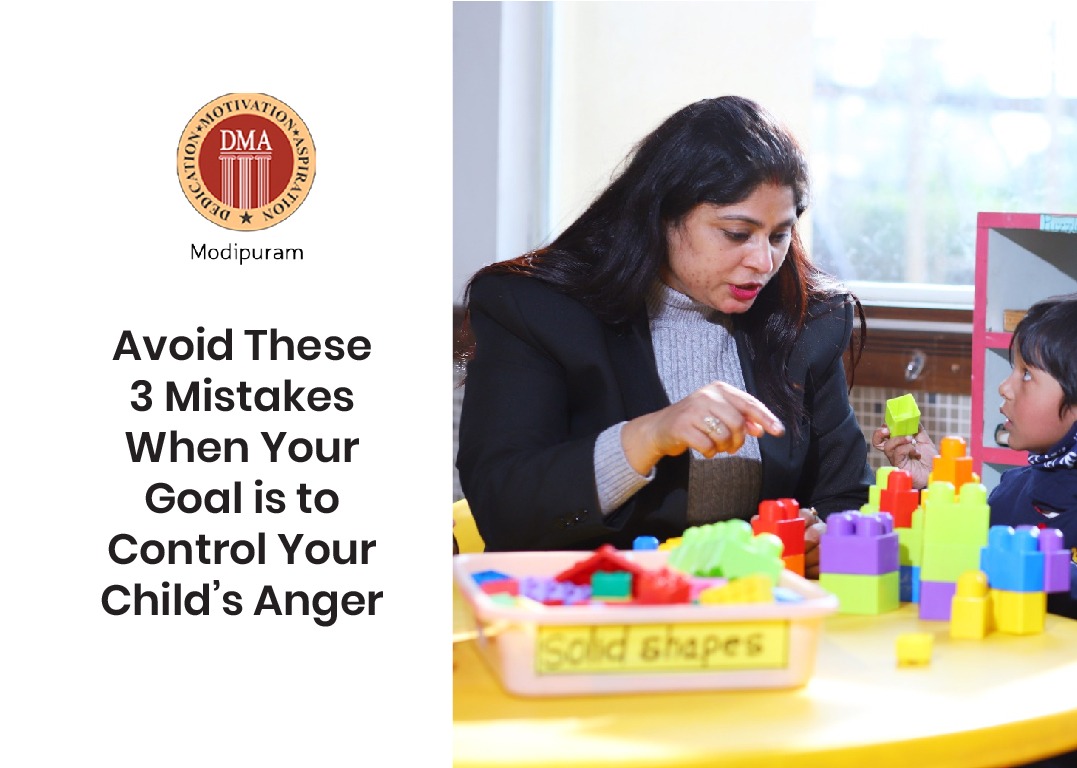Anger has served no one in the past and will serve no one in the future. However, none of us is a Saint to practice disassociation from anger, even though it is much needed in today’s day and age, where most of us are suffering from mental unease and stress.
As a parent, you may have encountered countless situations wherein you may have had to deal with an angry child. Here you would have had two options, either to talk your child out of anger or give your child some alone time to introspect and come back to normal.
That said, there are a few mistakes that, though should be avoided, most parents end up making unknowingly. Being associated with a diverse set of children for years now, we at Dayawati Modi Academy, a well-known best school in Meerut, know exactly how anger can be controlled among children. Let us now dive straight into this concern.
- Mistake 1 – Getting Angry Right Back at Your Child
One of the first mistakes that most people commit when the goal is to control the kid’s anger is to get angry at the child at that moment. When you behave in this way, the first thought to pass through your child’s mind is your inability to experience the difficulty that your child may be going through then. A lack of empathy on your part can make your child all the more angry, who can eventually even develop a pattern of getting angry at the drop of a hat.
Instead, what you need to do is to stay as calm and composed as possible. You need to make yourself understand that your child may be dealing with something that is grave for their age. We at Dayawati Modi Academy firmly believe that you, as parents, must be prepared for situations like this beforehand. This will make it easier for you to choose the right path and act in the interest of your child and the relationship you share.
- Mistake 2 – Turning a Blind Eye
At Dayawati Modi Academy, we strongly believe that through the growing up years, children do not have clarity about the choices they are making or the way in which they are acting. Hence, the duty of parents and teachers alike is to read between the lines and be available to the child, especially in times when the child is unaware of what is going on with him or her. The first thing an angry child seeks is support. He or she would like the parent to hold on to him or her and help cross the bridge from high temperament to ease and understanding.
Parents need to become aware of the triggers that may be possibly leading to their child getting angry. If you feel that it is beyond your capacity to spot these triggers, then you can go ahead and seek professional help so that your child does not remain in that difficult mental state for long.
When parents turn a blind eye to their children, especially during the phase when the child is angry beyond measure, the child may develop lasting signs of dislike towards the parent and choose to cut off other areas of bonding as well.
In the end, it is important for parents to realize that children are human, which means it is completely normal for them to feel angry. The goal should be to not allow children to remain in that phase for long and eventually find composure on their own.
- Mistake 3 – Not investing in Anger Management Techniques
Anger management techniques prove to be extremely helpful when it is time to control anger bouts in children and otherwise. To make this a part of children’s lives, parents need not wait for children to get angry. This communication can be passed on to the children as a part of their grooming activity.
Parents should speak to children about the many consequences of nurturing anger. Something as basic as drinking a glass of water or counting numbers to 10 shall help children do away with anger and gain composure. These techniques need to be introduced to children in a timely manner so that when difficulty strikes, children do not feel clueless or start looking for parental support.
Leading by example is a great way of unveiling anger management techniques before children. You, as a parent, need to adopt these into your day-to-day living, and your child will not hesitate to follow suit.
Concluding Words:
As a parent, you may have considered controlling your child’s anger pangs. However, you may have felt stuck about achieving the end without disrupting the otherwise cordial and harmonious relationship between you and your child. At Dayawati Modi Academy, a renowned best school in Meerut, we recommend that you lay focus on free communication and excellent listening abilities so that your child does not grow up into a grumpy and angry individual.

